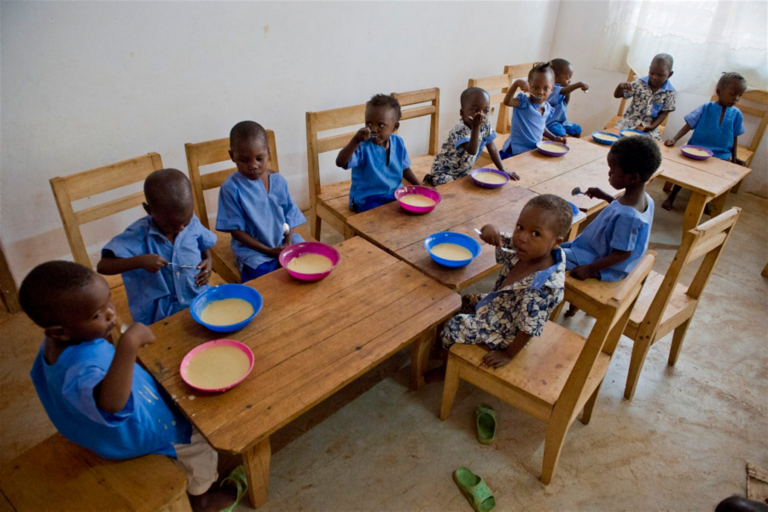WFP will partner with local women’s farming groups to provide them with training, supplies, and a guaranteed market for their crops. This will increase the variety of nutritious foods available in school meals and boost the incomes of 1,140 women farmers.
A “Home-Grown School Meals” program will target 136 schools. Farmers will grow fresh vegetables and orange-fleshed sweet potatoes for these schools. Woodlots will be established to provide sustainable cooking fuel and reduce reliance on firewood.
Funding will be used to build or upgrade kitchens and storage facilities in 136 schools, benefiting 1,500 students. Locally-sourced fish will be added to the school meal menu once a week in eight schools.
By providing nutritious meals, the program aims to improve children’s health and focus, leading to higher attendance and better academic performance. Women farmers will gain valuable skills and a reliable market for their produce, boosting their incomes and contributing to local development. The use of woodlots and fuel-efficient stoves will reduce deforestation and protect the health of cooks.
This initiative supports Sierra Leone’s “Feed Salone” program and its National School Feeding Policy. It promotes locally-sourced food production, which can strengthen food security and benefit communities economically and socially.
This collaboration between Iceland and WFP will improve the lives of children, farmers, and the environment in Bonthe District. It serves as a model for sustainable school feeding programs that promote education, economic development, and environmental responsibility.
ABJ/APA


